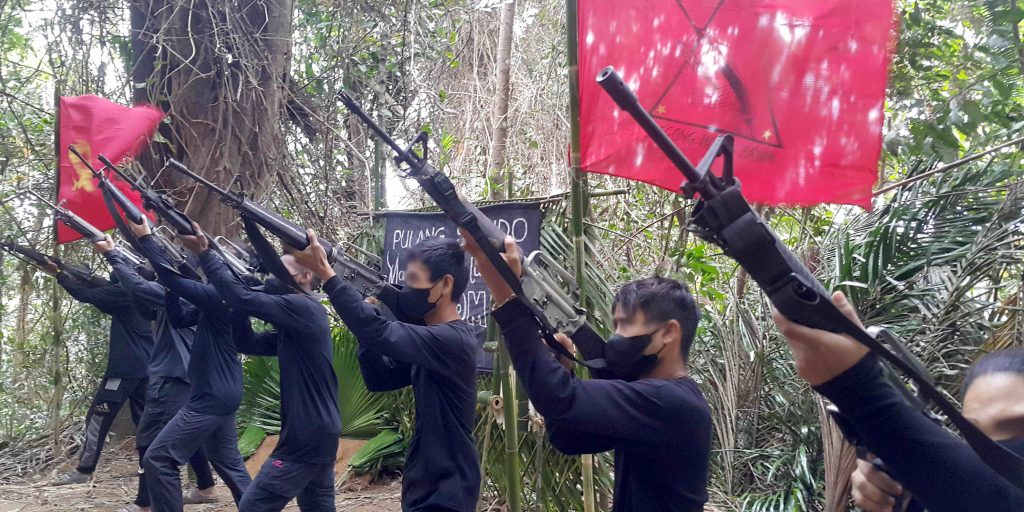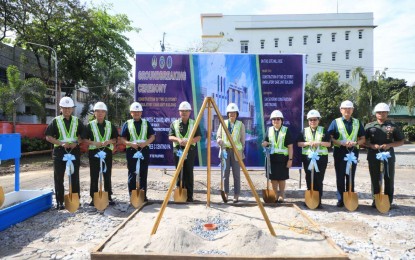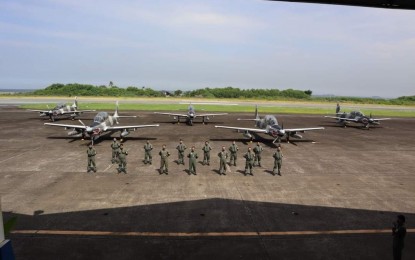From BenarNews (Feb 28, 2023): From militancy to PhD: Brother of Bali bombers reaches academic peak (By Eko Widianto)

Ali Fauzi Manzi, a former terror convict whose brothers were behind the 2002 Bali bombings, shed tears as he delivered a speech during commencement at a university in Malang last week.
The repentant former bomb-maker for the al-Qaeda-affiliated Jemaah Islamiyah had just received his doctorate in Islamic education for his research subject, “Religious moderation for former terrorism convicts.”
Ali, 51, says meeting with the Bali bombing survivors and the victims’ families made him dedicate his life to helping former militants like himself reintegrate into society.
“This is the happiest day of my life,” he said to loud applause in front of more than 2,000 other graduates at the University of Muhammadiyah Malang.
“I was once a terrorist who was shunned by society. But today I have achieved a high academic degree,” he said, while speaking about the doctorate he achieved after 3½ years of research.
When Ali met the victims of the Bali bombings and their relatives in 2011, some had permanent disabilities or had lost loved ones.
“My heart was torn apart,” Ali told BenarNews, adding he embraced them and apologized.
He then founded Lingkar Perdamaian (Circle of Peace), a foundation focused on aiding former radicals and militants reenter society.
Ali was not directly involved in the Bali bombings. But he is a brother of the trio of militants behind the 2002 attack – Ali Imron, Ali Ghufron and Amrozi.
Ghufron and Amrozi were executed by firing squad in 2008, along with another Bali bomber, Imam Samudra. Imron is serving a life sentence and has cooperated with the police in counter-terrorism efforts.
The Bali bombings of Oct. 12, 2002, killed 202 people and injured hundreds more.
Ali spent three years in the 1990s fighting alongside the Moro Islamic Liberation Front in the southern Philippines.
He returned to the southern Philippines in 2002 to lead a militant camp, the same year Jemaah Islamiyah militants carried out the bombings in Bali – the country’s worst terrorist attack.
Ali was arrested by the Philippine authorities and was deported to Indonesia in 2004 where he was imprisoned for three years after being convicted for terrorism.
‘Like a disease’
For his PhD dissertation, Ali said he interviewed six former terrorism convicts.
They told him that they joined militant groups after being swayed by teachings about jihad (religious war) from religious leaders in school.
Ali underwent rehabilitation and deradicalization in 2004 at the national police headquarters after arriving in Indonesia from the Philippines.
Back then, he said he was sick and injured.
“I was treated well by the police. I thought I would be tortured and experience violence,” he said.
Still, Ali criticized some deradicalization efforts by the National Counterterrorism Agency (BNPT) and the Densus 88 anti-terrorism police unit for treating each individual the same way.
Ali said his research found that deradicalization programs for former terrorists would not work if authorities did not understand how they became radicalized.
There is no one-size-fits-all model, he said.
“It’s like a disease. The doctor has to diagnose what’s wrong and prescribe the right medicine with the right dose,” he said.
Ali said his foundation approached each individual differently, starting with discussions on a book that deals with different opinions among Islamic scholars on a host of issues.
“The book shows that there is no unanimity among scholars. We should not treat differences with hostility. The early scholars were very tolerant of differences. They did not think they were always right,” he said.

The Jakarta-based Institute for Policy Analysis of Conflict (IPAC) said the government’s deradicalization programs are “largely ineffective,” partly because they mostly draw in prisoners who have already decided on their own to disengage.
A 2020 IPAC report said 11% of terror convicts in the country become repeat offenders.
Freed terror convicts reoffend because they are surrounded by a high level of radicalism in prison, or they are in close contact with a militant family member after their release, or there is a powerful ideological movement that looks attractive, the report said.
A 2019 IPAC report said there were about 1,200 convicted terrorists in Indonesia, of whom half were in prison. Only about 10% of the released prisoners had participated in any formal deradicalization program.
‘Education defeats terrorism’
Ali’s academic achievement and deradicalization efforts were praised by a controversial figure, Umar Patek, a convicted Bali bomber who was released on parole in December 2022 after serving two-thirds of his 20-year sentence.
Umar had been wanted by governments of the United States, Australia, the Philippines and Indonesia, but Indonesian counterterrorism officials tout him as a deradicalization success.
The news of his early release angered people and officials in Australia – 88 Australians were killed in the Bali bombings.
Umar attended Ali’s graduation ceremony and took a photograph with him.
“Who says terrorists are stupid? It’s not easy to obtain a doctorate degree,” Umar said about Ali.
“Education defeats terrorism. This is a strong message for me and other former terrorists.”
https://www.benarnews.org/english/news/indonesian/indonesia-former-terror-convict-gets-phd-02282023132940.html
























